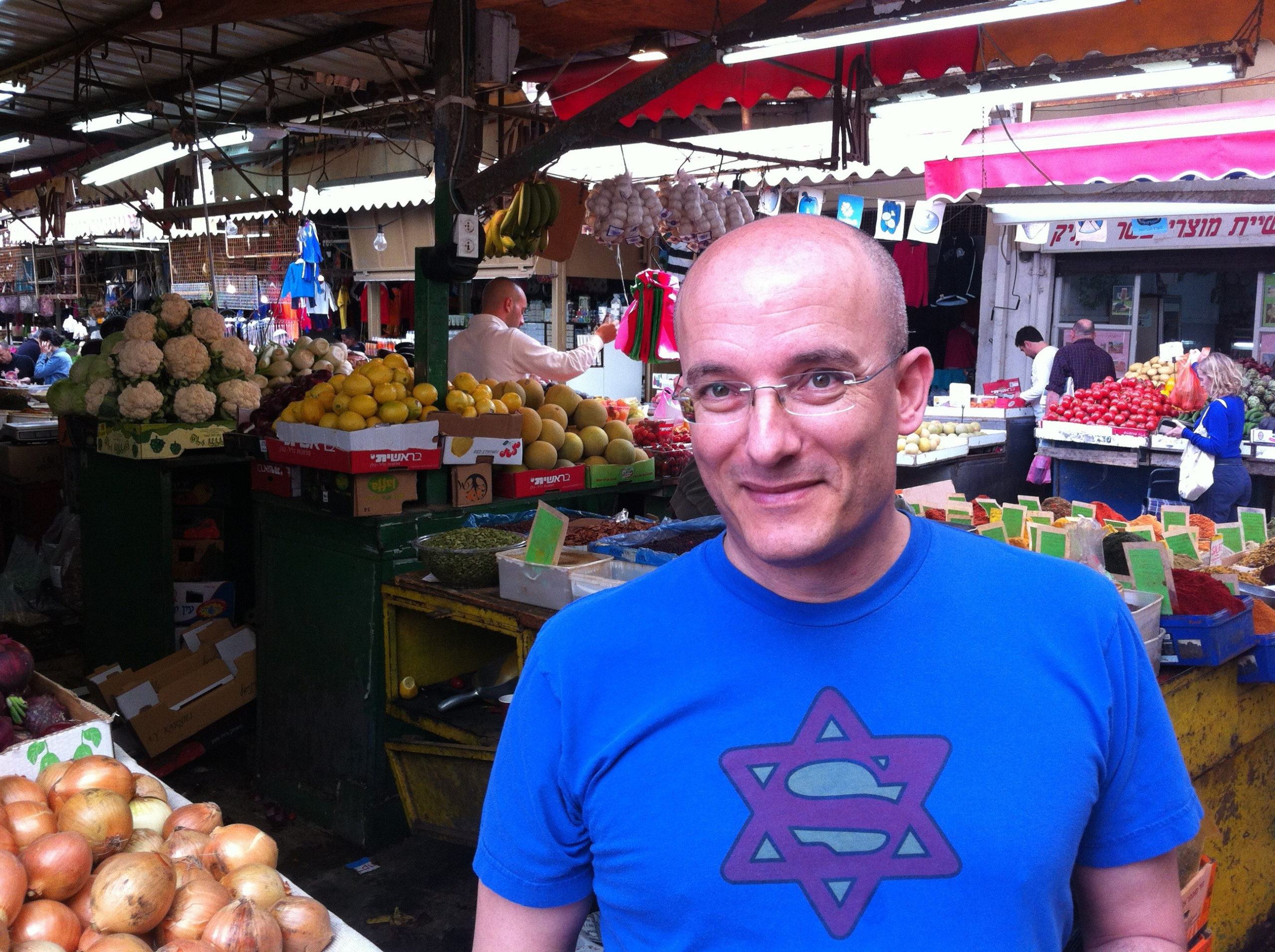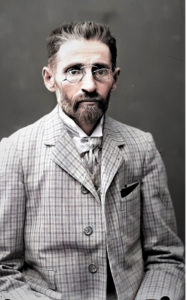click to dowload our latest edition
CLICK HERE TO SUBSCRIBE TO OUR NEWSLETTER


Published
2 years agoon
By
Steven GruzdHe’s the great-grandson of the reviver of modern Hebrew, Eliezer Ben-Yehuda. He’s descended from a long line of writers and journalists. But Gil Hovav is very much his own man. The 60-year-old Jerusalem-born Tel Aviv resident is a famous food critic, a former TV producer, and a successful writer. He’s heading to South Africa to speak at Limmud in Johannesburg, Cape Town, and Durban in August. His talks are dishes not to be passed up.
“I’m now a true Limmudnik,” Hovav told the SA Jewish Report via Zoom from London. “The first time I was invited to Limmud in the UK, I wasn’t sure what it was, but it looked very Jewish. I said I was honoured to be invited, but that I’m a heathen. I don’t practice Judaism. I didn’t have a Barmitzvah. They said speak about something connected to Judaism. That I could do, and it was really so lovely. Limmud has such energy, and is a wonderful bunch of knowledge-seekers.” Hovav has since presented at Limmud in the United Kingdom, United States, Germany, Israel, Poland, Russia, and Ukraine.
This year is the hundredth anniversary of the death of Eliezer Ben-Yehuda in 1922. I asked Hovav what it meant to have such a famous forebear. “It’s a privilege,” he said. “But I don’t believe in dynasties. I have met so many idiots descended from geniuses and the other way around. My great-grandfather was a prophet, a Zionist 20 years before Theodor Herzl, and proudly secular. A hundred years ago, there was no Jewish state, no language, no pride, no dignity. He made it all come true.” Ben-Yehuda faced an uphill battle against religious Jews who really didn’t want Hebrew to be a spoken language. He was spat at and stoned in the streets. But he pushed on with his dream.
His descendant, one of Israel’s most famous restaurant critics, tells me he’s not a chef and never studied cookery. He learned to cook simple fare from his grandmother, growing up in Jerusalem. “She cooked peasant food. Jail food,” he chuckles. “Very basic traditional dishes.” In spite of travelling around the world eating in three Michelin-star restaurants for his aptly named TV series Captain Cook, he prefers plain home-cooked meals.

When he grew up, he said, “Israel was a socialist country. People didn’t eat in restaurants. It was impolite to enjoy life.” His parents – pioneering radio journalists – were avowed capitalists, however, who dined out a lot. Their love of the good things was passed down to their children. As a poor student, Hovav juggled multiple jobs, including teaching Arabic, being a bartender, cleaning houses, and giving private lessons. He grabbed the chance to be a bar critic for the local Jerusalem newspaper Kol Ha’ir, and moved to critiquing restaurants from there.
Street food in Israel is excellent, safe, and clean, he said, and there’s much fusion cuisine. “Where else can you eat a French baguette with Thai chicken and a hot Ethiopian sauce? It’s a mixture. Sometimes it’s hideous. Sometimes it’s wonderful. Israel is the land of innovation – it can be adventurous and embarrassing. The food scene is booming in Tel Aviv.”
In the ethnic mélange that is Israel, he recommends trying a Moroccan doughnut called a sfinj, Brazilian food, and Yemenite pastries. He takes his overseas guests to the Tel Aviv spice market to sample everything from Iraqi to Georgian to Turkish delicacies, and drink Israeli alcohol.
“In Tel Aviv, it’s hard to find kosher food and in Jerusalem, it’s hard to find non-kosher food,” Hovav said. He finds that though kosher food has come a long way, there are some dishes it will just never pull off. “There are some wonderful kosher restaurants, but not at the high end. They’re the traditional ‘greasy spoons’”.
In spite of producing television series about food for 20 years, Hovav hung up his apron about five years ago. I expected him to be a fan of cooking shows like MasterChef. He isn’t. “Cooking isn’t about competition. It’s about love.” He has resisted being a judge on these shows. “I don’t want to tell a grandmother that her food isn’t good enough,” he said. “I never loved TV,” he admits. “I’m a writer first. Since I stepped away, I feel there’s more oxygen in the air.” He now devotes time to lecturing and writing.
Hovav is in London working on his latest book, which tries to find the truth behind the tales told by his grandparents through their passionate love letters to each other. “They are super interesting, very romantic. But a lot of it is myth.” It was a forbidden romance between an between a Sephardi aristocrat and a penniless Ashkenazi. Their own writing embellished these stories, and they were so casual about extra-marital affairs they both indulged in.
I ask whether he thinks food can be the bridge between communities such as Israelis and Palestinians. He replies that organisations like “Chefs for Peace” have good intentions, “but the problems are bigger than just eating a good shakshuka together.” As a gay man, he says “once people know the people who are supposed to be the enemy, once they can sit and talk, they cannot really be enemies”.
“I talk very frankly about life in Israel,” Hovav said. “Sometimes people in the diaspora are too idealistic, they want Israel to be something it no longer is.” He said all his friends have left Jerusalem, a beautiful but totally intolerant and conservative city. “Tel Aviv is amazing. It’s so much more fun than New York. It’s the heart of modern Israel.”
His Limmud sessions are about Ben-Yehuda, hummus, and the contemporary Israeli family. “The food talks are fun, but I think the historical and literary lectures have more meat in them. You can get a glimpse of what Israel is really like.” Don’t miss out on these dollops of Gil Hovav.
